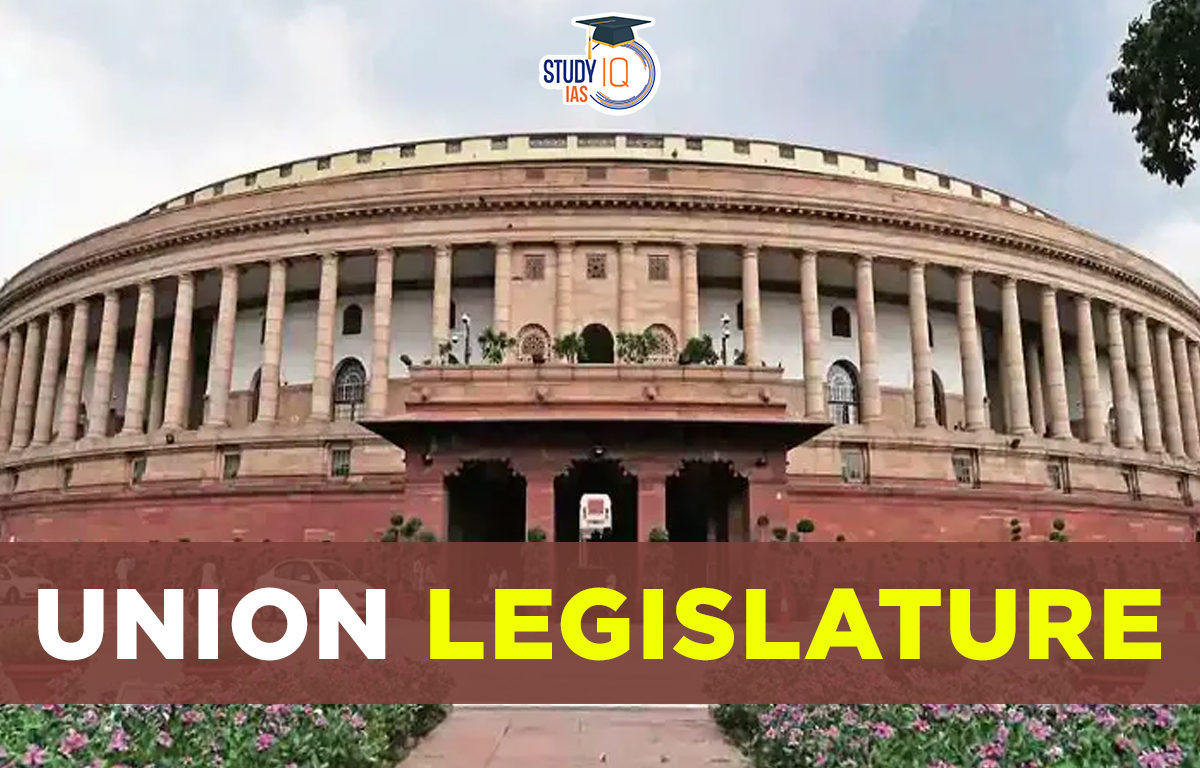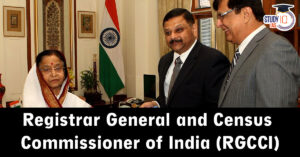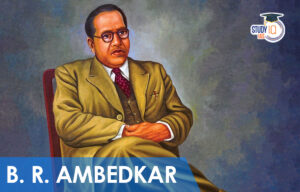Table of Contents
Indian Polity, Polity, GS paper 2, General Studies Paper 2
Union Legislature
The Union Legislature of India serves as both the country’s legislative body and the hub of all democratic political activity. India’s Parliament is its highest legislative body. The Rajya Sabha (Council of States) and Lok Sabha (House of the People) are the two Houses that make up the Indian Parliament. The President has the power to call a session of either House of Parliament, prorogue it, and dissolve the Lok Sabha. India’s Constitution became operative on January 26, 1950.
The Union Legislature is an important part of Indian Polity which an important subject in UPSC Syllabus. Students can also go for UPSC Mock Test to get more accuracy in their preparations.
Union Legislature Meaning
The Parliament, which is the legislative arm of the Union government and is also referred to as the “Westminster” model of government, occupies a dominant and pivotal place in the Indian democratic political system as a result of the adoption of the parliamentary form of government. In this article we will understand all the component of Union Legislature.
Union Legislature and Component
The President, the Council of States, and the House of the People are the three chambers of the Indian Parliament, according to the constitution. In 1954, the House of People and the Council of States acquired the Hindi names Rajya Sabha and Lok Sabha, respectively. The Rajya Sabha is the Lower House (First Chamber or House of Elders), and the Lok Sabha is the Upper House (Second Chamber or House of Elders).
Additionally, he carries out duties linked to parliamentary proceedings, such as calling both Houses to order and proroguing them, dissolved the Lok Sabha, addressed both Houses, issued ordinances while neither House is in session, and so forth. In the parliamentary system of government, the interdependence between the legislative and executive branches is emphasized. This has led to the creation of the “President-in-Parliament,” which is comparable to the British “Crown-in-Parliament.” The two residences are organized differently and sit independently.
Also Read: Union Council of Minister
Union Legislature Significance
Important issues both domestically and internationally are discussed in the parliament. In this sense, the opposition is crucial in ensuring that the nation is aware of opposing viewpoints. People from a variety of ethnic, racial, linguistic, and ideological backgrounds are able to participate in the creation of laws and policies because to the parliamentary system of government.
In a democracy, the Parliament is in charge of debating significant matters before legislation or resolutions are passed, and it is usually referred to as a “mini-nation”. The state and UT limits may be altered, shrunk, or increased at the discretion of the Parliament. Information can also be found at the House of the People. Ministers are required to provide information upon request from House members.
Union Legislature Rajya Sabha
The Rajya Sabha is a body that is indirectly elected and represents the Indian States. Rajya Sabha members are chosen by the elected members of the State Legislative Assembly. Regardless of size or population, every state in the United States has equal representation in the Senate; however, this is not the case in India.
India gives more delegates to states with a bigger population than to states with a smaller population. For instance, the most populous state, Uttar Pradesh, sends 31 representatives to the Rajya Sabha, whereas Sikkim, which has the lowest population, only sends one. The fourth schedule of the Constitution establishes the number of representatives from each State that must be elected.
Members of the Rajya Sabha are chosen for a six-year tenure, after which they are eligible for reelection. Rajya Sabha members are chosen in a way that prevents them from serving their full terms; instead, every two years, one-third of them finish their terms, and elections are held just for those seats.
The Rajya Sabha is referred to as the perpetual House of the Parliament since it never entirely dissolves. The President picks 12 members from the domains of literature, science, art, and social service in addition to the elected members.
Union Legislature Lok Sabha
The people directly elect the members of the Lok Sabha and the State Legislative Assemblies for a five-year term. However, if the Lok Sabha is dissolved (no party has a majority in government) before the end of the term, another election will be held.
Union Legislature Functions of the Parliament
The Parliament performs both legislative (lawmaking) and financial (budgetary and money bill tasks); in addition, it supervises and holds the Executive accountable. There are no restrictions on the power of discussion in the Parliament because it is the highest platform for debate in the nation. The Parliament has the authority to propose and pass amendments to the Constitution (also known as the amendment power).
As it chooses India’s President and Vice President, the Parliament also fulfils some electoral duties. The motions for the dismissal of the President, Vice-President, and judges of the Supreme Court and High Courts are considered and decided by the Parliament, which also performs judicial duties.
Union Legislature Powers
The Lok Sabha can introduce and pass both money and non-money legislation, and it can “make laws” on issues covered by the Union List and Concurrent List. Non-money bills are reviewed, approved, and suggested revisions for money bills by Rajya Sabha. The Lok Sabha adopts budgets, taxation plans, and yearly financial reports. Constitutional modifications are approved by the Rajya Sabha. The Lok Sabha creates committees and commissions and takes into account their recommendations. The Union parliament may be granted authority by Rajya Sabha to enact laws on issues covered by the State list.
Special Powers of Rajya Sabha
The Rajya Sabha has some unique authority. In the interest of the country, the Rajya Sabha must approve any removal of an issue from the State List (over which only the State Legislature may pass laws) to either the Union List or Concurrent List.
Special Powers of Lok Sabha
Rajya Sabha is unable to propose, reject, or amend money bills because the Lok Sabha has the only authority in this area. The Lok Sabha may or may not adopt the Rajya Sabha’s amendment(s) to the Money Bill.
Union Legislature UPSC
Parliament is a critical political and constitutional institution that serves as the foundation for values such as democracy and people’s representation and is thus critical to achieving the constitutional goals. Students can read all the details related to UPSC by visiting the official website of StudyIQ UPSC Online Coaching.


 Mechanisms to Combat Judicial Corruption...
Mechanisms to Combat Judicial Corruption...
 Registrar General and Census Commissione...
Registrar General and Census Commissione...
 Ambedkar Jayanti 2025: Biography, Legacy...
Ambedkar Jayanti 2025: Biography, Legacy...





















